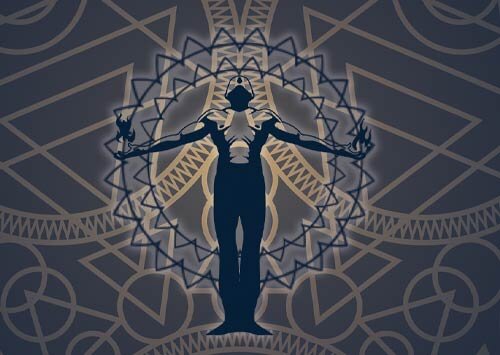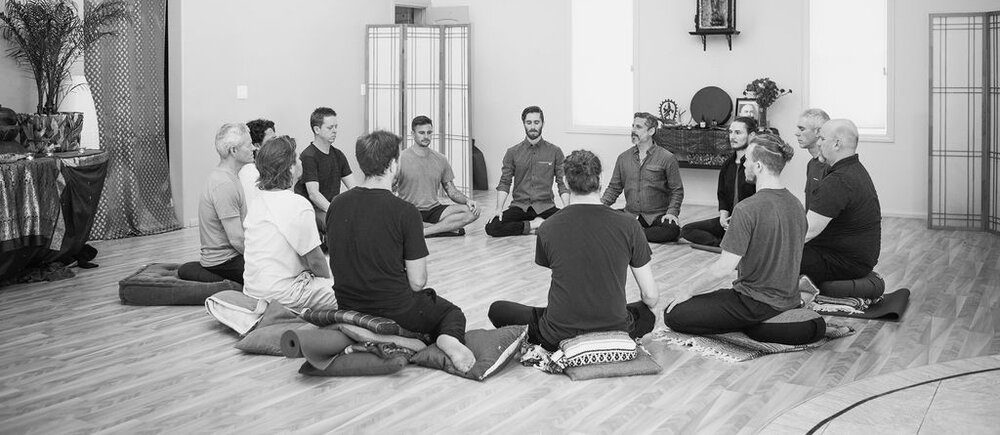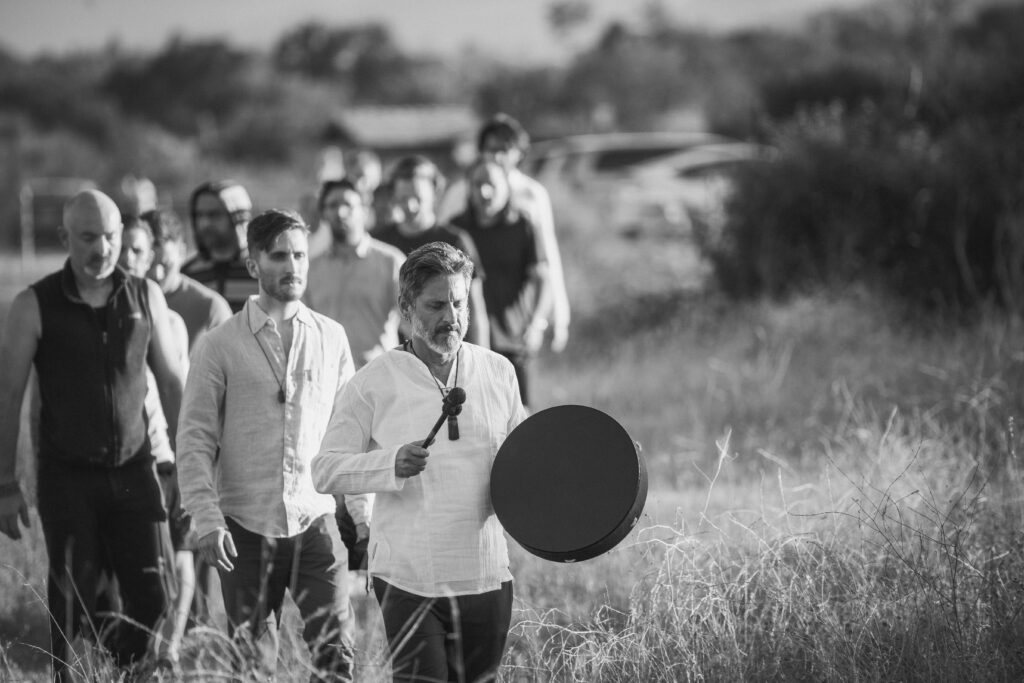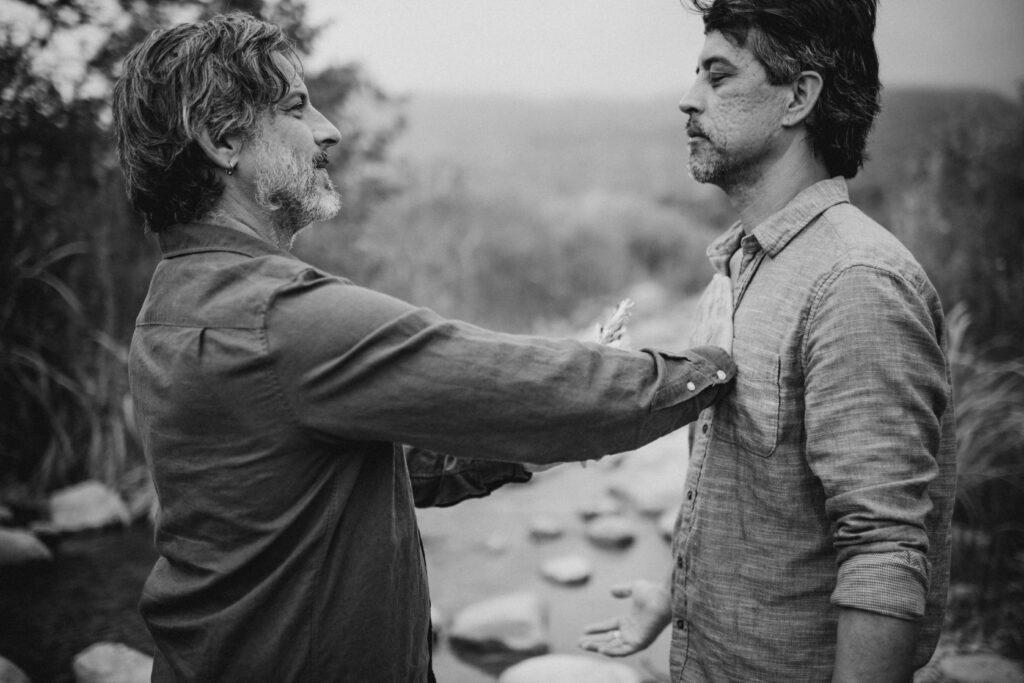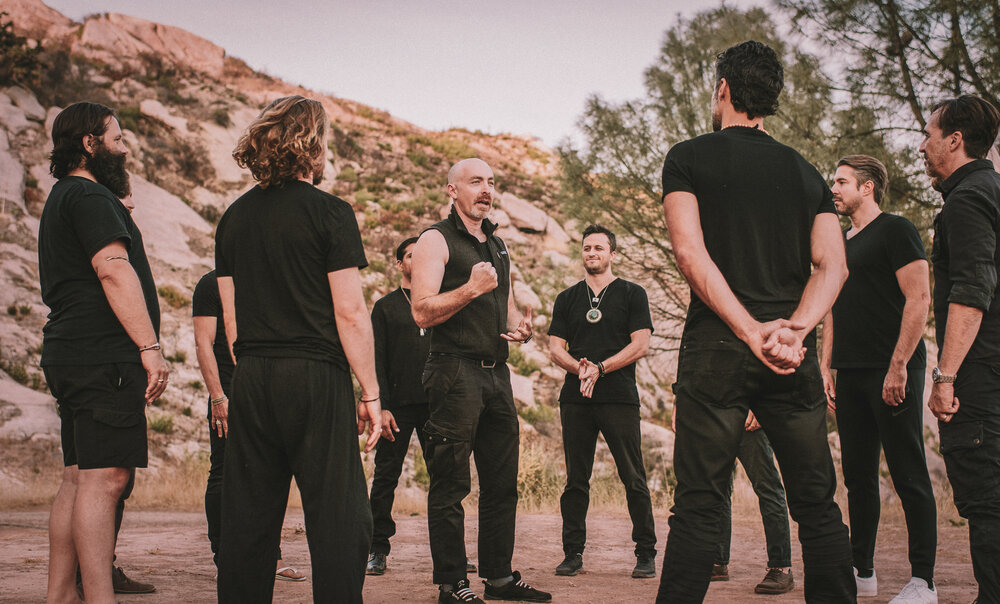The other day my son was upset about how a friend was treating him. He said to me, “he makes me mad; it’s his fault.” I listened to him, invited him to be present with his emotions, and offered him suggestions on working with his feelings and the situation.
We use blame as kids to help us deal with complex and big emotions. The issue is that most of us haven’t matured beyond our “upset six-year-old” way of dealing with things.
I have seen so many guys – myself included – get stuck in blaming. Actually, blame can be quite addictive. Blaming others – especially our romantic partners – for our feelings of discontent can give us a momentary rush of power but will leave us feeling flat and empty after.
Blame usually occurs when a fear arises within us or a need like acknowledgment, appreciation, affection, etc., feels unmet by a friend, family member, or romantic partner. The fear and unmet need intersect and are interrelated, but both originate from some underlying wound.
Your intimate partner cancels dinner plans, and it triggers an abandonment fear. Most likely, you are not self-aware enough to see the abandonment trigger (or maybe you are, but that still doesn’t stop you) and stop the ensuing reactivity that causes you to blame your partner.
Or your partner didn’t sprinkle sweet rainbow words on their feedback about how you discipline your child. So, your wound of being unappreciated gets triggered, and that unmet need leads you to blame them for being rude and controlling.
You then get sucked into the spiraling mental chatter about all of the ways they aren’t meeting your needs.
You lose presence and agency.
You fixate on the things they are doing wrong.
You “should” on them, harping on their flaws and mistakes.
The psychology term for blame is projection. It’s a force with a mind of its own.
Its goal is to find a target for our unprocessed emotional wounding. Blame is our way of not having to take responsibility for our feelings. And it makes sense, most men do not have the tools or capacity to deal with big emotions, so it’s natural to blame others.
But, no matter how valid your grievance is with your partner, by making them the primary focus – what they are doing wrong, and then justifying why it’s wrong – you are making yourself out to be a victim.
Blame and the Relational Power Play
It’s so much easier to blame your partner than it is to accept responsibility for your own upset. So, to maintain feelings of superiority and blamelessness, you enter into the relational power play.
Men try to one-up their partners using logic and analysis as a way to prove their point, but they’re actually missing the whole point. Obviously, there are many sensitive and emotional men, but there are far more who approach problems and upsets by attacking them with logic and linear analysis.
And to maintain the upper hand, you end up imposing a kind of emotional hostage situation on yourself and them.
“I’m going to keep blaming you using my intellect, keep taking it out on you by being shut down, quiet, and aloof until you change your thoughts, words, or behaviors to meet my expectations. Until you meet my needs and expectations, I’m just going to keep myself stuck here in this shitty state of mind so that I can feel that I have the powerful upper hand.”
Maybe you are both shut down and giving each other the silent treatment. Or perhaps you are attacking them with blame. Either way, it is the antithesis to a healthy conscious relationship.
There is a Buddhist idea called the second arrow.
The Buddha taught:
“In life, we can’t always control the first arrow.
The second arrow is our response to the first. But the second arrow is optional.”
The first arrow is the initial pain we feel in reaction to some circumstance or situation, like your intimate partner canceling a long-awaited romantic dinner date.
The second arrow is our resistance to the pain that just occurred. This can be focused on blaming others or on blaming ourselves.
The second arrow is your self-deprecating thoughts and judgments and the ways you perpetuate your own suffering.
How many of you brothers can see how you shoot the second arrow at yourself?
Blame is a sure way to deplete the beauty of your relationship.
If you want to create a conscious, loving, intimate relationship, you must remove blame as a go-to solution. Part of being in relationships includes feeling disappointed and getting triggered by your partner. Still, blame and criticism must be transformed into compassion, emotional responsibility, conscious communication, and seeking creative solutions.
For those that think blame can be an ally or tool, don’t be confused.
Blaming is not the same as having strong boundaries or speaking your truth when someone has caused harm. These can be healthy responses, and so is offering your friend or lover honest, constructive feedback.
What I’m talking about here is the unenlightened approach of blame: the reactive, unhealthy, manipulative, controlling, toxic, unconscious projecting of your internal issues.
When blame is a go-to communication for when you feel fear, or when you feel you’ve been wronged, or you feel indignant – this is the time you need to be cautious and doubt your logic.
Blame doesn’t work.
There are no quick-fix answers, but you can affect positive change today.
Right now, commit!
– Pause- remain silent – STOP blaming your intimate partner – be watchful for when you feel the blame demon arising.
-Take on the practice of radical responsibility for how you’re feeling and seek to digest your emotions before figuring out a solution and sharing how you feel.
– Look underneath your blame to reveal what you’re afraid of or what needs are not feeling fulfilled.
-When you are afraid or have unmet needs – care for yourself: take a bath, go for a run, journal, call a loving friend, do yoga, hit a punching bag.
And my two of my faves are-
– Learn to make powerful, compassionate requests from your partner for behavior changes, rather than just blaming them for all the crap you think they are doing wrong.
– Taking the blame (for the advanced practitioner). If you are the type to quickly blame others, try on the practice of “taking the blame,” not as a victim or in a self-deprecating way but in a conscious, loving, and self-empowering way.
And beware of the second arrow…
